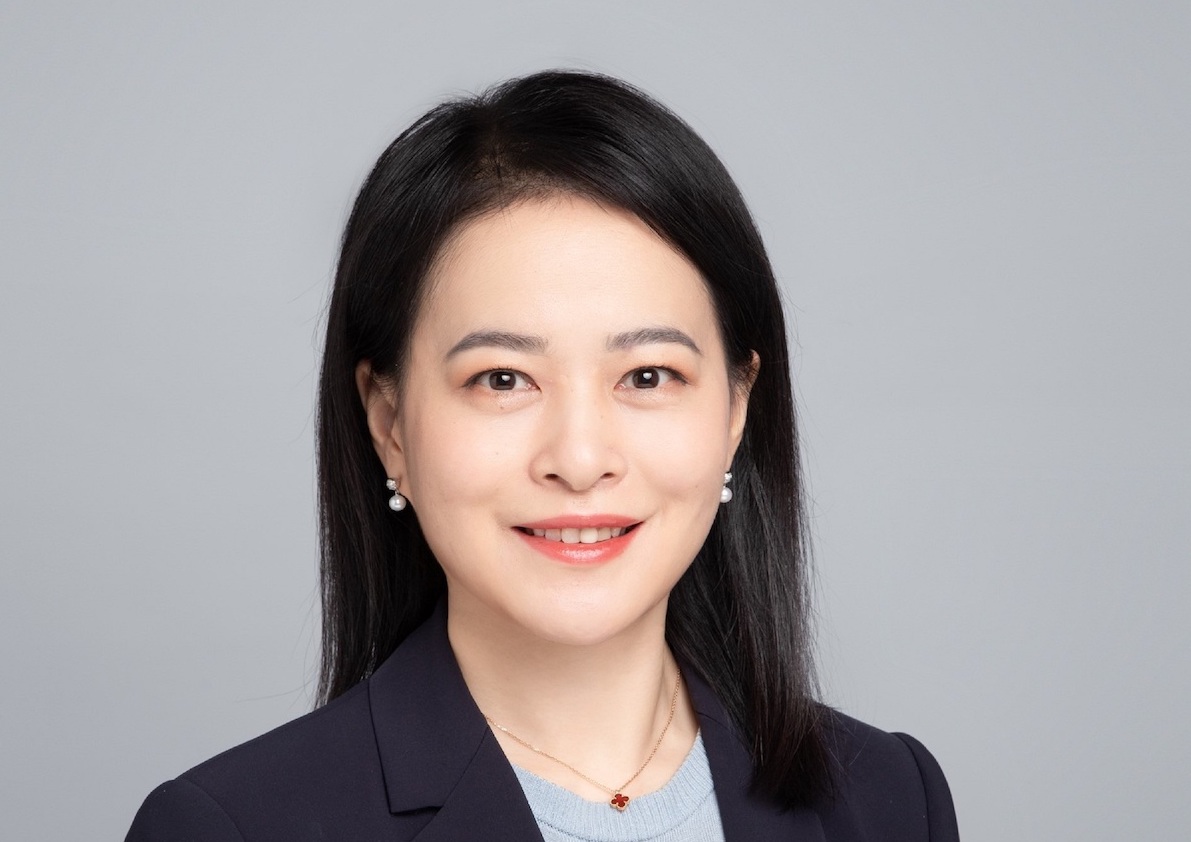BlackRock: 2021 Mid-year Asia Investment Outlook on Equity and Fixed Income Markets
BlackRock investment professionals set out their mid-year 2021 Asia investment outlook on equity and fixed income markets released on 23rd June 2021:
- Belinda Boa – BlackRock Head of Active Investments for Asia Pacific and CIO of Emerging Markets Equities
- Neeraj Seth – BlackRock Head of Asian Credit
- Ronie Ganguly – BlackRock Portfolio Manager, Asia Fixed Income and Credit
- Lucy Liu – BlackRock Portfolio Manager, Global Emerging Markets Equities
- Nicholas Chui – BlackRock Portfolio Manager, Global Emerging Markets Equities
BlackRock: 2021 Mid-year Asia Investment Outlook on Equity and Fixed Income Markets:
Managing the recovery

A vibrant global economic recovery is underway, and while the pandemic-related social and economic stresses remain, we believe Asian risk assets are well-positioned to benefit and are focusing on the next leg of the investment journey.
Recovery, reflation and sustainability are the three major themes guiding our portfolio positioning in Asian credit and equities, with an emphasis on the ability of issuers and companies to navigate the current climate successfully.
The risks to our mostly positive outlook include demand-driven inflation derailing the growth path, geopolitical tensions leading to detrimental outcomes for financial markets and progress on overcoming the pandemic taking a step back.
We entered 2021 convinced that the global economy would regain its footing, based on the strong and coordinated pandemic-related global policy response and expected progress on vaccinations. This has largely played out, albeit unevenly according to each nation’s ability to control the spread of the virus and address the health and economic malaise. Most developed countries have recovered faster than developing ones thanks to generally higher vaccination rates that have expedited the reopening of their economies. A lack of vaccine supply or effective vaccination programs, combined with fewer fiscal and monetary tools available to help manage social tensions, has meant a disproportionately harder hit to developing countries in general.
Within emerging economies, we believe Asia’s case is advantageous. For one, China dealt with the virus first and its economy turned the corner ahead of other nations. The region has been more successful than others in controlling the spread of the virus, resulting in a more limited economic impact outside of the most vulnerable areas, such as travel, hospitality and entertainment. India, faced with severe socioeconomic hardships this year, avoided the costly lockdowns of 2020, and we believe the investment case there holds up despite uncertainty about its reopening pace. We remain optimistic about the prospects for Asian risk assets over the next several months. We base this on our assessment of the global reopening, China’s balancing act between its growth and reform agenda, and the region’s ability to attract global capital flows based on its strong fundamentals.
“We remain optimistic about the prospects for Asian risk assets over the next several months.”
Factors to consider
A supportive external environment

The abundant liquidity from the pandemic-related fiscal and monetary push in the U.S. and other developed countries remains a key driver for risk assets. We believe markets will have a long runway before the U.S. Fed stops its asset purchases or begins raising interest rates. Any changes are likely to be telegraphed long before they occur, and we see a repeat of the 2013 taper tantrum as unlikely.
Our base case is that the Fed’s low-for-longer rate policy remains in place, with a potential decision on tapering pushed at least to the fall. Actual tapering – if decided – could begin by year-end to early next year, with rate hikes potentially by mid-2023. This releases external pressures for China, facilitating its focus on its domestic agenda.
China’s balancing act
China’s challenge is to support domestic and international growth while advancing internal initiatives. A key one is to rekindle the deleveraging started in 2016 but paused two years later when the U.S. Fed policies led to excessive tightening of financial conditions. Stripping state-owned enterprises of the implied guarantees offered to them given their distinct status remains a policy priority. Yet removing the moral hazard implies trade-offs, including the risk of rising defaults. If systemic risk is avoided and defaults occur in an orderly manner, the resulting greater transparency and credit differentiation will help investors in the longer term. Other initiatives are tightening credit to prevent a real estate bubble and clamping down on monopolistic structures in the key internet tech sector. If executed successfully, the policies can contribute to longer-term stability and deepening of China’s capital markets.
Strong regional fundamentals
Emerging Asian economies are generally less vulnerable to the risks of external financing versus both their peers and their own history. India, Indonesia and the Philippines have narrowed their deficits, while China, Korea, Taiwan and Malaysia enjoy surpluses. India’s current account deficit is about 1.5%, down from near 5% at its peak in 2013. Similarly, Indonesia’s is down to 2%, roughly half of what it was in 20131. As a result, these economies will be better prepared to face a liquidity squeeze when the Fed eventually starts injecting fewer dollars into the system. A dwindling dollar supply weighs heaviest on countries with high U.S. dollar debt and/or high current account deficits, and markets react accordingly.
Risks to the outlook
Macroeconomic

The concern that persistent inflationary pressures may trigger a policy reversal from the current highly expansionary stance has grown. However, we see this more as a medium-term risk and believe the cause of inflation matters. Supply-driven inflation has resulted from factories ramping capacity toward pre-Covid-19 levels and input cost rising due to high demand and low supply. We believe a reversion to the mean will correct this imbalance. By contrast, demand inflation owed to an unprecedented fiscal and monetary push by the U.S. and other developed economies, if sustained, could be problematic. We will watch this closely as changes in global rates will impact our view on the U.S. dollar and corporate margins and profitability.
Geopolitics
We see a potential escalation in geopolitical tensions. This is not limited to the U.S.-China relationship, which will likely remain competitive and even contentious across multiple fronts, but could broaden. The U.S. administration’s coalition- building strategy will likely lead to greater polarization. Not all is negative. We see progress toward financial market integration. China’s opening up to financial firms and rising international flows into its onshore markets evidences the role Chinese assets can play in global portfolios.
The pandemic
Despite significant progress in the health aspect of Covid-19, it would be imprudent to assume a setback-free road ahead. A large portion of the world’s population remains unvaccinated, the threat of new variants is real and not entirely understood, and lax attitude by people and/or governments may aggravate situations at certain times and locations.
Regulatory
There is concern that China’s antitrust push against large technology, media and telecom (TMT) giants could spread into other sectors. As active investors, we are watching this closely because changes in the operational environment of companies may impact their longer-term profitability.
“We see external financing posing less risks to emerging Asian economies relative to both their peers in other regions and their own history.”
Fixed income view
We remain constructive on Asian credit. The global need for income has risen and this region stands out as a sourcing ground. In addition, reasonable valuations, coupled with a positive macroeconomic backdrop, should further support global interest in the asset class. We prefer high yield credits (HY) over investment grade (IG) given that the severest price dislocations have occurred in HY, specifically B-rated credits.
China, the biggest opportunity set for investment, is also the portfolios’ largest overweight position. We prefer a barbell strategy for our blended portfolios, combining Asian and Chinese single-B credits with the higher-quality single-A credits across the investment universe, from China to the Middle East.
Valuations have meaningfully influenced our recent portfolio positioning. We remain long on some of the frontier sovereigns for tactical reasons and have grown more selective in India due to tight valuations and uncertainties on its economic reopening. We turned into a neutral position in Indonesia recently after a strong performance over the past six months pushed up valuations considerably in that country.
In the local credit markets, we still like China, India and Indonesia in the medium term. We prefer FX- unhedged exposures in India and Indonesia and partially FX-hedged in China as we aim to gain from the strong carry and U.S. dollar softness, which we believe will continue. Tactically, we like duration in Korea, Malaysia and Thailand on a currency-hedged basis. The appeal lies in the relatively steep pricing of rate hikes in Korea and high expected real yields in Malaysia and Thailand. Conversely, we are short or underweight duration in Singapore. This market is more susceptible to higher U.S. Treasury yields, and its real yield cushion is uncompelling.
China’s deleveraging efforts will result in price differentiation, better fundamentals and ultimately a more efficient onshore credit market. For now, our key focus is on managing idiosyncratic risk while such benefits are mostly ahead on the horizon. As active investors, we aim to turn the pickup in default rates and varying levels of risk premia priced into companies into potential opportunities to generate alpha, in both the onshore and offshore markets. The critical link is understanding the credits deeply.
We see the U.S. dollar holding its value or weakening marginally this year. Key drivers are the U.S. easy monetary policy, its large fiscal debt and current account deficit and the ongoing global economic recovery. If correct, the greenback will on balance be a positive for Asian countries.
Equity view
Last fall, we began positioning the portfolios for a cyclical upturn based on our expectation of gradual normalization in global demand. This is largely on track, and while setbacks are possible, lockdowns this year have been shorter-lived and more targeted than they were in 2020.
As we look forward, the long-established just-in- time supply model is changing. We see China remaining a crucial link in global supply chains but not playing the same role it did before 2018. A new emphasis on self-reliance and relevant industries for the future is backing long-term secular trends.
Sustainability themes, particularly related to new energy are emerging as potential investment opportunities. Ambitious targets include neighborhood electric vehicles sales of 25% in the auto market by 2025 and 40% by 2030, as well as a non-fossil fuel target of 20% of the energy mix by 2030. We are prudently positioning in solar inverters, EV batteries and photovoltaic-related components. This is not solely based on the global sustainability drive and climate change, but also on the increasing role we see China stepping into as a reliable global supplier of sustainability solutions. We have spotted companies with defendable global positions in these areas and have moved to an overweight position in new energy over the past six months.
Conversely, we have turned cautious on Chinese internet companies. Thus far, the regulatory clampdown has focused on larger companies with broad consumer reach and strong data-collecting capabilities. It remains unclear if the regulators may drill down to smaller players or even other sectors.
This dynamic, along with a company’s capacity to manage margin pressures due to rising input costs and intense competition that may erode earnings power, underscores the need for research and analysis of idiosyncratic and industry-specific fundamentals. We view this as a prerequisite for any alpha-generating potential.
We trimmed select positions in semiconductors and memory suppliers, reflecting changes in competitive dynamics and stock valuations that, after a good run, had begun to move ahead of their fundamentals, based on our analyses. This industry represents a key pillar for the future and, as such, our analysts monitor it closely.
We trimmed certain positions in India and Indonesia for tactical rather than structural reasons and are overweight in both countries. Our conviction in their investment case as strong domestic stories holds, and see a robust IPO pipeline in India for the rest of the year.
This is a BlackRock midyear 2021 Asia investment outlook on equity and fixed income markets by BlackRock investment professionals:
- Belinda Boa – Head of Active Investments for Asia Pacific and CIO of Emerging Markets Equities
- Neeraj Seth – Head of Asian Credit
- Ronie Ganguly – Portfolio Manager, Asia Fixed Income and Credit
- Lucy Liu – Portfolio Manager, Global Emerging Markets Equities
- Nicholas Chui – Portfolio Manager, Global Emerging Markets Equities
Disclaimer:
In Hong Kong, this material is issued by BlackRock Asset Management North Asia Limited and has not been reviewed by the Securities and Futures Commission of Hong Kong. In Singapore, this material is issued by BlackRock (Singapore) Limited (co. registration no. 200010143N). This advertisement or publication has not been reviewed by the Monetary Authority of Singapore.
This material is for informational or educational purposes only and does not constitute an offer, an invitation or a solicitation to purchase or sale in any securities or BlackRock funds in any jurisdiction in which such offer, invitation or solicitation is unlawful or to any person to whom it is unlawful under the securities laws of such jurisdiction.
Investment involves risk. Past performance is not a guide to future performance. The value of investments and the income from them can fall as well as rise and is not guaranteed. You may not get back the amount originally invested. Changes in the rates of exchange between currencies may cause the value of investments to diminish or increase. Levels and bases of taxation may change from time to time.
Any research in this material has been procured and may have been acted on by BlackRock for its own purpose. The results of such research are being made available only incidentally. The views expressed do not constitute investment or any other advice and are subject to change. They do not necessarily reflect the views of any company in BlackRock Group or part thereof and no assurances are made as to their accuracy.
This material may contain “forward-looking” information that is not purely historical in nature. Such information may include, among other things, projections, forecasts, estimates of yields or returns. This material is not intended to be relied upon as a forecast, research or investment advice, and is not a recommendation, offer or solicitation to buy or sell any securities or to adopt any investment strategy. The opinions expressed are as of June 23, 2021 and may change as subsequent conditions vary. The information and opinions contained in this material are derived from proprietary and nonproprietary sources deemed by BlackRock to be reliable, are not necessarily all-inclusive and are not guaranteed as to accuracy. There is no guarantee that any forecasts made will come to pass.
No part of this material may be reproduced, stored in retrieval system or transmitted in any form or by any means, electronic, mechanical, recording or distributed without the prior written consent of BlackRock.
Sign Up / Register
Caproasia Users
- Manage $20 million to $3 billion of assets
- Invest $3 million to $300 million
- Advise institutions, billionaires, UHNWs & HNWs
Caproasia Platforms | 11,000 Investors & Advisors
- Caproasia.com
- Caproasia Access
- Caproasia Events
- The Financial Centre | Find Services
- Membership
- Family Office Circle
- Professional Investor Circle
- Investor Relations Network
Monthly Roundtable & Networking
Family Office Programs
The 2025 Investment Day
- March - Hong Kong
- March - Singapore
- July - Hong Kong
- July - Singapore
- Sept- Hong Kong
- Sept - Singapore
- Oct- Hong Kong
- Nov - Singapore
- Visit: The Investment Day | Register: Click here
Caproasia Summits
- The Institutional Investor Summit
- The Investment / Alternatives Summit
- The Private Wealth Summit
- The Family Office Summit
- The CEO & Entrepreneur Summit
- The Capital Markets Summit
- The ESG / Sustainable Investment Summit

































